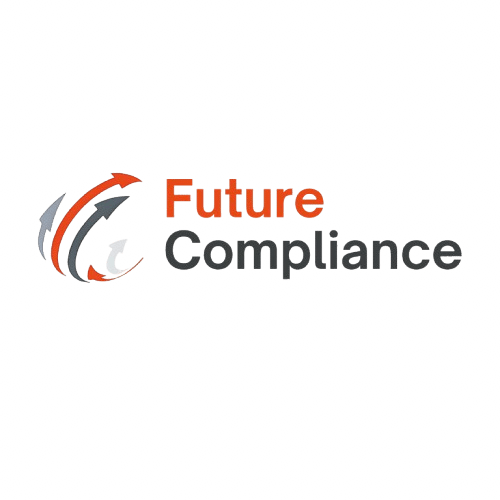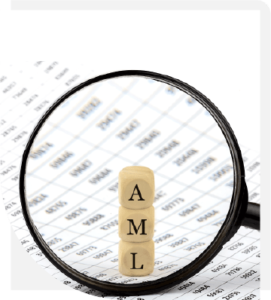Socio-Economic Impact of Money Laundering in the UAE
Money laundering is a global issue that poses significant risks to economies and societies, but in the context of the United Arab Emirates (UAE), it takes on unique challenges. Money laundering involves illegally obtained funds being funneled through various financial systems to make them appear legitimate. In the UAE, as in many other nations, money laundering facilitates various criminal activities such as terrorist financing, corruption, and drug trafficking, which can undermine the country’s financial integrity and security.
While the UAE’s economy is robust and its financial systems are sophisticated, the country faces risks from money laundering, especially given its status as a major international financial hub. This article delves into the socio-economic impact of money laundering within the UAE and highlights the efforts being made to address this issue.
Social Impact of Money Laundering in the UAE
Money laundering does not only have economic consequences—its social effects can be equally far-reaching. In the UAE, the negative outcomes are especially evident in society. Criminals who engage in money laundering often gain access to illicit funds, which they can use to expand their operations, thereby increasing social instability. This leads to higher costs for the government, including investments in law enforcement, healthcare, and public welfare to mitigate the impact of criminal activities linked to money laundering.
In addition, money laundering can distort the political landscape by empowering criminals to wield influence over public institutions. This undermines trust in governance and promotes corruption, impacting the nation’s social fabric.
Increased Government Spending on Law Enforcement
In response to the rise in money laundering activities, the UAE government has to allocate significant resources to strengthen its anti-money laundering (AML) frameworks. This means more spending on law enforcement, security measures, and public services, which ultimately affects ordinary citizens who rely on these services.
Economic Impact of Money Laundering in the UAE
The UAE’s economy is highly dependent on financial services, trade, and foreign investments, all of which can be severely impacted by money laundering activities. Financial institutions, as well as Designated Non-Financial Businesses and Professions (DNFBPs), play a critical role in maintaining the country’s economic stability. When money laundering runs rampant, it hinders economic growth, encourages corruption, and discourages foreign investment.
Money laundering in the UAE can have a ripple effect across various sectors, especially as criminals use the country’s financial systems to launder illicit wealth. This leads to negative consequences for sectors such as real estate, construction, and luxury goods—all of which are common targets for money launderers seeking to disguise their funds.
Macroeconomic Consequences of Money Laundering in the UAE
The UAE’s financial system is exposed to several macroeconomic risks stemming from money laundering, including:
- Weakened banks and financial institutions
- Increased crime and corruption
- Discouraged foreign investments
- Economic instability and market distortion
- Tax evasion and revenue loss
- Reputational damage on a global scale
- International sanctions
- Advantage for criminals
- Depreciation of the UAE Dirham (AED)
The influx of illicit capital into the UAE economy distorts financial markets and disrupts normal economic operations, especially with regard to international capital flows and exchange rates.
Implications for the UAE’s Socio-Economic Landscape
Money laundering has profound socio-economic consequences, especially for countries like the UAE that are still growing as global financial centers. Despite its strong economic growth, the UAE remains vulnerable to the destabilizing effects of money laundering, particularly given its high levels of international trade, large foreign investments, and economic dependence on global financial flows.
1. International Reputation and Foreign Investment
Countries with weak AML regulations or a reputation for facilitating money laundering risk losing international credibility. In the UAE, this means that foreign financial institutions may hesitate to engage in transactions with local entities, fearing the reputational damage of being linked to illicit financial activities. This can result in:
- Restricted access to global markets
- Higher transaction costs due to increased regulatory scrutiny
- Disruption of legitimate business operations
A negative international reputation as a money laundering haven can also affect foreign aid eligibility and government support from other countries.
2. Increased Corruption and Crime
Money laundering acts as a catalyst for other forms of criminal activity. The UAE, like other countries, faces the challenge of corruption that stems from weak AML enforcement. Criminals use money laundering to finance illegal operations such as drug trafficking and terrorism. This increases the burden on law enforcement and public safety resources.
Weak enforcement of AML laws can lead to a rise in bribery and corruption, as criminals may attempt to influence political leaders, law enforcement officials, and financial regulators to turn a blind eye to illegal activities. This undermines public trust in institutions and makes it harder for law-abiding citizens to rely on the rule of law.
3. The Role of Shell Companies and the Private Sector
Money laundering often involves the use of shell companies—businesses that exist on paper but are controlled by criminals or money launderers. These companies mix illegitimate funds with legitimate business revenue, making it difficult for authorities to trace the original source of the money.
In the UAE, shell companies may be used to infiltrate various industries, including real estate and luxury goods, through undocumented financial flows. This distorts the market, creates economic instability, and limits fair competition.
4. Weakened Financial Institutions
Financial institutions in the UAE are vulnerable to the reputational risks and operational losses associated with money laundering. As global scrutiny on financial institutions increases, banks and financial entities in the UAE may face higher compliance costs and potential sanctions for failing to enforce AML policies. This creates a challenging environment for growth and innovation within the financial sector.
5. Privatization and Economic Integrity
Money laundering activities can interfere with privatization efforts by enabling criminals to acquire state-owned assets and public resources at unfair prices. This not only distorts the market but also hinders the ability of legitimate businesses to compete fairly for valuable assets.
The Importance of a Robust AML/CTF Framework in the UAE
To combat the socio-economic impact of money laundering, the UAE must maintain and strengthen its anti-money laundering (AML) and combating the financing of terrorism (CFT) frameworks. The benefits of having a solid AML/CFT framework in place include:
1. Enhancing the Stability of Financial Institutions
A strong AML/CTF regime helps ensure that financial institutions in the UAE remain safe and secure from illicit activities. By enforcing Know Your Customer (KYC) and Customer Due Diligence (CDD) regulations, these institutions can reduce exposure to fraud and financial crime, ultimately boosting public confidence.
2. Encouraging Economic Growth
Money laundering can hinder the legitimate flow of investments by diverting illicit funds into non-productive ventures. A robust AML framework ensures that investments support real economic growth and contribute to the overall productivity of the UAE economy. By minimizing illicit activity, the government can foster an environment conducive to legitimate business activities.
3. Fighting Corruption and Crime
A well-structured AML/CFT regime acts as a deterrent to criminal activities. By targeting the roots of money laundering, the UAE can curb the power of corrupt individuals and criminal organizations. Seizing assets from money launderers and enforcing stringent penalties reduces the incentives for criminals to engage in illegal activities.
Conclusion
Money laundering poses a significant risk to both the social fabric and economic stability of the UAE. Its impact is far-reaching, affecting everything from public trust and political integrity to the very structure of the country’s economy. By strengthening its AML/CFT frameworks, the UAE can protect its financial reputation, encourage sustainable economic growth, and reduce the criminal activities that threaten its future.
For businesses in the UAE looking to comply with AML regulations, FTI Audit offers tailored solutions designed to reduce the socio-economic consequences of money laundering and help organizations navigate the evolving regulatory landscape.



